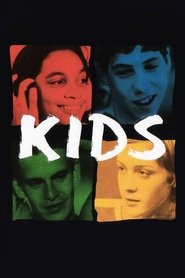Reading contemporary commentary from around the film's release is perhaps as fascinating as the film itself. A perfectly preserved time capsule of Clinton-era discourses on race, welfare, cinematic depictions of sex, HIV/AIDS, sexual assault, absent fathers, drug consumption, the 'child-friendly' Disney corporation — and all in a film released by Harvey Weinstein's Miramax.
These kids live entirely in a world of their own. Other people—adults—simply do not exist. […] What is interesting is that you can hardly even see Manhattan in this movie; the camera, like the characters, sees only this sad youth culture. What is not human and between 12 and 17 essentially does not exist. [Later,] they beat up another kid so brutally that he could have been killed. The kid they attack is black, but so are some of the attackers; their pack includes all races. They are color-blind, or perhaps it is more accurate to say they comprise a race of their own.
The beggar on the New York subway has a body truncated at the waist and he rolls on a cart, chanting "I have no legs!" in a singsong as he passes. Just for a moment, he attracts the notice of Telly (Leo Fitzpatrick) and Casper (Justin Pierce), who look young and healthy but are actually much more damaged than this legless man.[…]
A scene in which a black skateboarder is beaten savagely by a mostly white crowd, for instance, plays as something beyond a racial incident; it plays as something worse. Moments earlier, the mob has taunted an interracial gay couple, and when violence erupts in a staccato fury, it's clear these rootless, macho skateboarders are simply itching for a fight. The depth of this malaise is much scarier than prejudice alone.
[The] very saddest of the lost characters in Kids are the little brothers, seen here sampling drugs, watching enviously at parties and trying to keep up with the tough talk. They've barely reached puberty and are already drifting into the older boys' decadent, irreversible extremes.
— Janet Maslin (The New York Times)
Rarely have sexual transactions seemed so depressingly mechanistic. Unlike Clark's extraordinary books of black-and-white photography, Kids is stunningly anti-erotic, though not untainted by sensationalism.
— David Ansen (Newsweek)
Mr. Clark's vision of these characters is so bleak and legitimately shocking that it makes almost any other portrait of American adolescence look like the picture of Dorian Gray.
— Janet Maslin (The New York Times)

